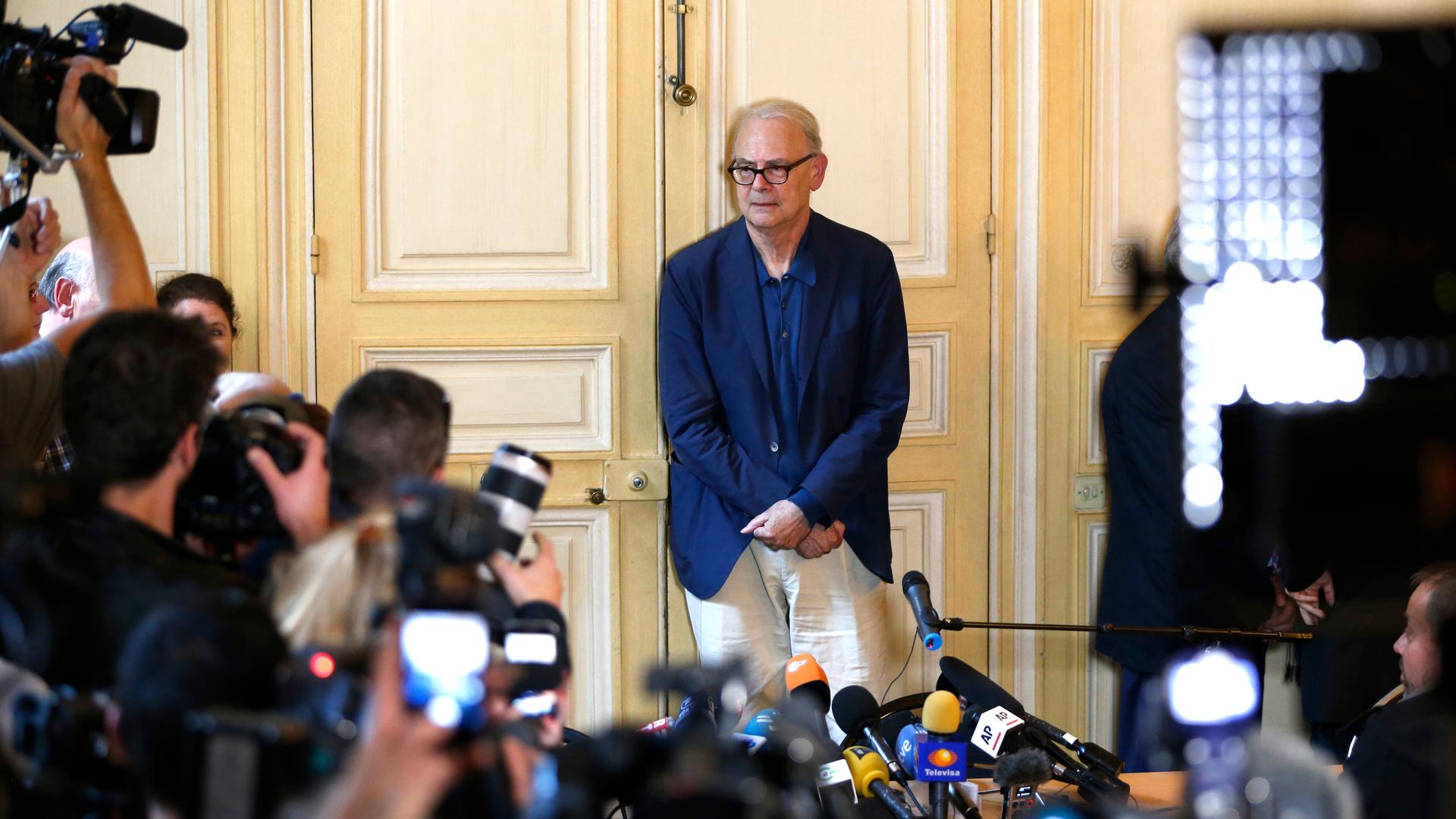French writer Patrick Modiano poses for journalists in Paris on October 9, 2014, after he was declared the winner of the 2014 Nobel Prize for Literature.
"I was not yet 20, but my memories date to before I was born," says French writer Patrick Modiano, who's now a Nobel laureate.
It's a fitting statement for the author of the seven-volume epic, "Remembrance of Things Past", who's sometimes touted as the "modern-day Marcel Proust" — yet has a pretty low profile among the reading public.
Vivienne Walt, the Paris correspondent for Time magazine, says that while Modiano's novels — and sentences, for that matter — may be much shorter and far more accessible than Proust's were, his subject matter is extremely Proustian. “He is always searching for this lost world,” Walt says.
That lost world is France under Nazi occupation, which is the subject of much of Modiano's work. Modiano himself was what you might call a product of that occupation. His parents met during that time; his father had Italian Jewish roots and his mother was a Belgian actress.
“For a very long time he lied about the year he was born," Walt says. "He said he was born in 1947, whereas he was born in 1945 and would've been conceived during World War II and during the Nazi occupation.”
Regardless of when he was born, his childhood was far from happy. “His mother was on tour a lot, the kids were left alone a lot," Walt says. "He lost his older brother when his older brother was 10, he died of a disease."
His parents weren't much comfort, either. His father was a sketchy figure, moving in and out of Modiano's life. His father was something of a bootlegger during the war and was somehow able to survive as a Jew in Paris without getting deported. Rumors circulated that he had collaborated with the Nazis.
When Modiano was a teenager, he cut off his relationship with his father — yet he has devoted several of his books to his father as well.
As for his mother, Modiano reportedly once "described his mother's heart as so cold that her lap-sized Chow Chow leapt from a window to his death," according to Agence France-Presse.
One of Modiano's most popular works is the 1978 detective thriller "Missing Person," which delves into a world of smoky Parisian cafés, illegal passports and an amnesiac trying to figure out who he is.
He’s written dozens of novels, he's well known in France and has had several works translated into English. But most in the English-speaking world still haven't heard of him.
“In a sense, [the Nobel Prize for literature] has become a prize for someone that most of the book reading universe has never heard of," Walt says.
Modiano probably doesn't object to that, either. He's a known recluse; the Nobel Committee couldn't even get in touch with him before they announced his prize. When someone finally told him the news on the street today, he walked the other way.
"It was like I was a bit detached from it all, as if a doppelganger with my name had won,” he said at a press conference today. "When you write something, it's like being a prisoner, you can never really be your own reader, you have a slightly blurred vision as a writer. So I am looking forward to finding out their reasons for choosing me, for honoring me in this way."
Our coverage reaches millions each week, but only a small fraction of listeners contribute to sustain our program. We still need 224 more people to donate $100 or $10/monthly to unlock our $67,000 match. Will you help us get there today?
